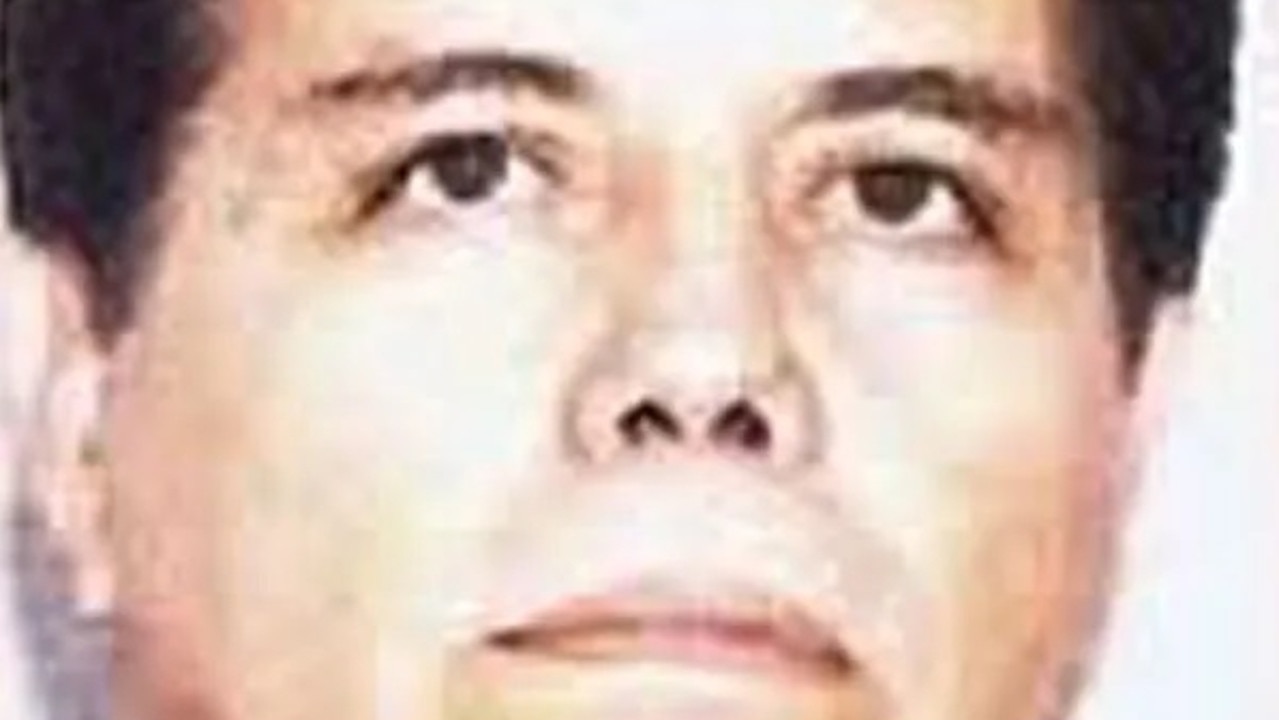Narcos on the front line: Drug divers’ role to stop criminals as trusted insiders take cash bribes
Trusted insiders are working for drug cartels to bring their shipments to Australia. This is how they operate. See more in our Narcos on the front line docuseries.
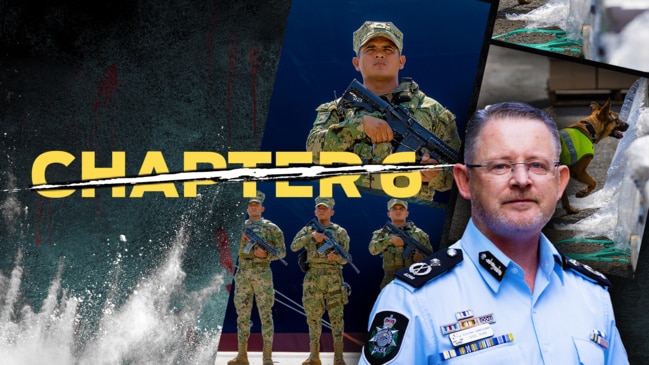
Narcos on the Front Line
Don't miss out on the headlines from Narcos on the Front Line. Followed categories will be added to My News.
Every shipment of drugs into Australia relies on the corruption — or naivety — of 20 people in the supply chain, it can be revealed.
Australia’s record-breaking drug prices are enticing dock workers, freight forwarders, and baggage handlers to risk their freedom for quick cash.
Accountants, lawyers and real estate agents are also being bribed to move money for drug cartels.
Some supply chain workers are working for criminals because of gambling or drug debts, while cartels arrange for some of their associates to get jobs in key industries.
“We estimate that for every organised criminal that is in the supply chain, there’s about 20 people either willingly or unwittingly assisting in the supply and facilitation of that movement of those commodities,” Australian Federal Police Assistant Commissioner Nigel Ryan said.
“There are obviously vulnerabilities along this supply chain that law enforcement has to look at.”
Tonnes of drugs are coming into Australia in containers, while some shipments are simply welded on the hulls in “parasite” shipments.
Police in Colombia’s Caribbean port of Cartagena, which is a source of drugs for Australia, dive under ships each day to check if they have been compromised.
A video of one of the searches shows police divers removing a drug shipment bolted to the base of a ship in that port.
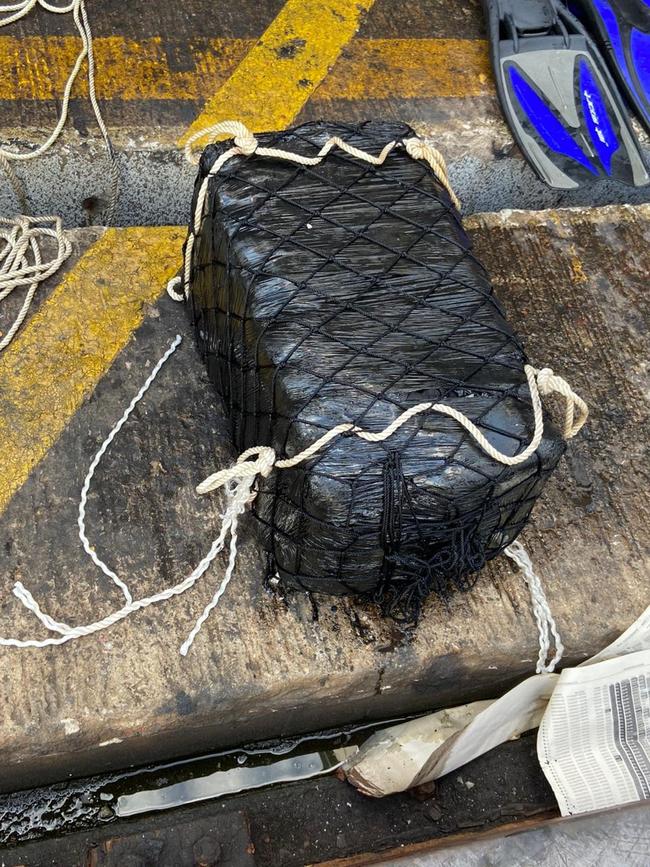
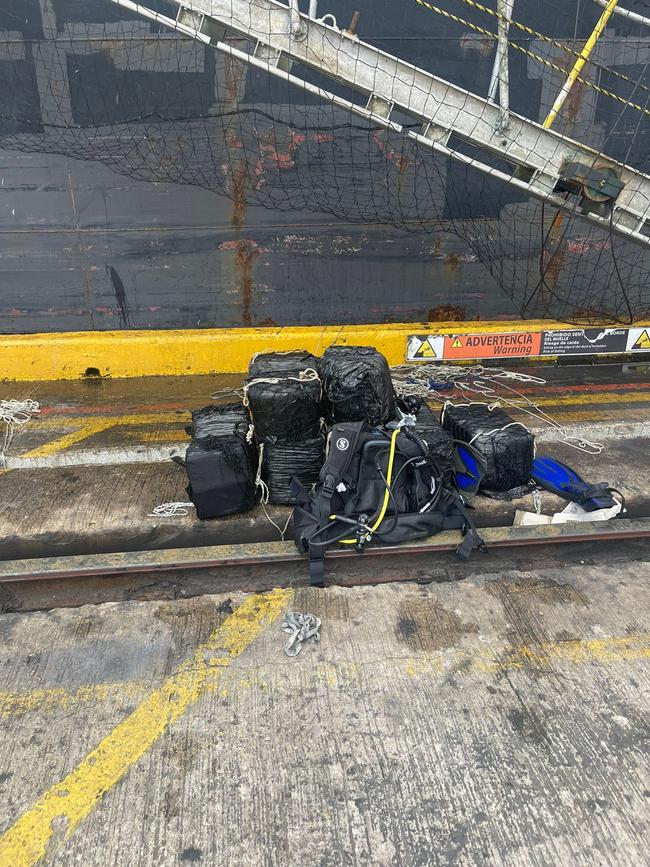
Watch episode 6 of the Narcos on the front line docuseries above.
Some parasite shipments do reach Australia, despite the determined efforts of Colombian National Police.
A $20 million cocaine haul turned deadly in May last year when scuba diver Bruno Borges was found floating among bags of the drug in Newcastle’s harbour.
The 31-year-old Brazilian was attempting to retrieve the drugs from the hull of a ship that sailed to Australia from Argentina.
Commander Reagan Stewart, the AFP’s leader on supply chain integrity, said people who help drug cartels were known as “doors”.
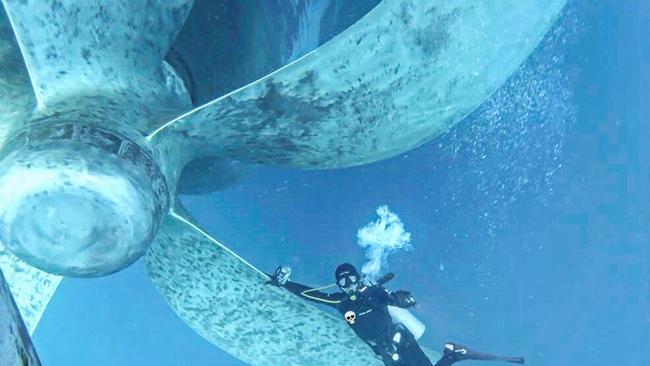
“They’re the people working in those specific industries that are either bribed, coerced, induced or actually positioned by some groups in those positions to give them access,” Cmdr Stewart said.
“There’s always going to be elements out there looking for new trusted insiders because of the importance of that door into Australia.”
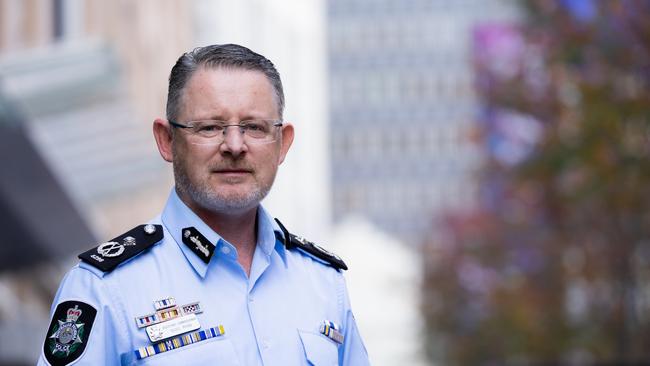
Commander Stewart said “doors” often worked for multiple drug syndicates, traded like a chess piece for organised crime.
“(Organised crime) they’re always going to replace them or build up in another person or coerce another person into those elements,” she said.
Police have been targeting the “doors” to disrupt drug shipments.
“I’m hoping that if we are persistent in this challenging environment, it’ll end up in reducing the amount of drugs that come into our community,” she said.
Former Qantas baggage handler Damion Flower was sentenced to 28 years jail last year.
The racehorse owner was found guilty of importing 228kg of cocaine into Australia through Sydney Airport with the help of a Qantas insider.
Originally published as Narcos on the front line: Drug divers’ role to stop criminals as trusted insiders take cash bribes


